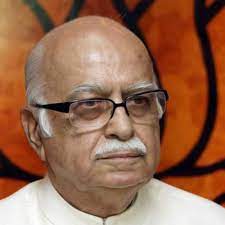
Lal Krishana Advani says he has extreme affection for Karachi. “After all I was born in Karachi, I had my schooling in Karachi, a few years of college in Karachi. I was 19 years old when I left Karachi.”
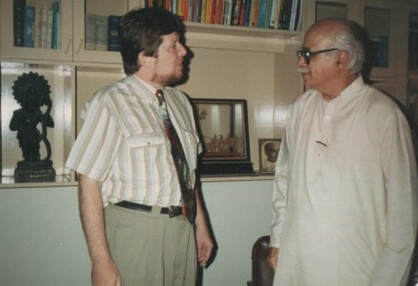
Lal Krishna Advani (born 1927) has been one of the commanding figures in Indian politics. Along with Atal Bihari Vajpayee, he led the Hindu nationalist BJP from being a fringe force to a party of government. He had three spells as president of the BJP totaling eleven years and was India’s Minister of Home Affairs from 1994 to 2004, the last two years of which he was also Deputy Prime Minister. L.K. Advani was born and grew up in Karachi, joined the RSS there and only left what had become Pakistan to come to India a month after independence. In this interview – conducted in Delhi on 11 March 1947 – he reflects on his home city and the tension in the run-up to Partition, and on visiting Karachi in 1978 as an Indian government minister. A transcript is posted below. When I was the BBC’s Delhi correspondent in the 1990s, I interviewed L.K. Advani on several occasions. He was always a forthcoming interviewee – sometimes a little irascible, but in this interview, by far the most personal I conducted with him, he clearly enjoyed looking back on his childhood and youth in Karachi, and his early involvement in Hindutva politics.
[L. K. Advani interviewed by Andrew Whitehead, Delhi, 11 March 1997]
Andrew Whitehead
DO YOU HAVE AN AFFECTION FOR KARACHI?
Extremely. After all I was born in Karachi, I had my schooling in Karachi, a few years of college in Karachi. I was 19 years old when I left Karachi.
AND YOUR WERE SAYING TO ME EARLIER THAT YOUR MEMORIES OF IT ARE AS A MAINLY HINDU CITY.
That’s true. That’s true about most urban centers in Sindh. Sindh was a province – we called it a province in those days – which did not have a very large population. If I am not mistaken, it had a total population of 43 lakhs, 4.3 million – of which 13 lakhs may be Hindus, 30 lakhs may be Muslims. But the Hindu population was principally in the cities and towns, whereas the Muslim population was in the countryside mainly. Karachi, as far as I recall, had a population of something like 3-and-a-half to 4 lakhs at that time.
IT WAS A SMALL CITY –
It was a small city. If I’m not mistaken, even Delhi had a population of 7 or 8 lakhs at that time. By today’s standards that was also a small city. But for us it was a big city. 3-and-a-half to 4 lakhs. If my memory serves me right, the impression was that in undivided India, the two neatest cities were Karachi and Bangalore. They were supposed to be the cleanest cities. So naturally I have a very fond remembrance of that birthplace of mine.
YOU WERE SAYING THAT MOST OF YOUR FRIENDS WERE HINDUS –
Or Christians or Parsees, or some Jews also – because in my school, it was the biggest school in town, St Patrick’s High School, there were very few Muslims, hardly any. And that was true about most schools excepting a few madrasas etcetera.
SO WHO WERE YOUR FRIENDS THEN IN KARACHI? WHO WERE YOU MIXING WITH AT SCHOOL?
Why, Christians and Hindus. Parsees also a few, because Karachi had a segment of Parsee population. Some Jewish population also. It’s a rough thing but even out of 3-and-a-half to 4 lakhs, 70 or 75% would be Hindus – the remaining divided among the others, some Anglo-Indians also.
IT IS SOMETHING THAT YOU LOSE SIGHT OF WHEN YGO TO KARACHI TODAY, THAT HALF-A-CENTURY AGO IT WAS A HINDU CITY
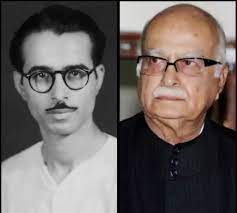
Now it is totally different. And what really hurt me, pained me, and once was one news item that appeared in some newspaper about, maybe 10, 12 years ago or maybe even more, which said that a survey conducted by some UN agency had ranked Karachi as among the ten dirtiest cities of the world. I was really shocked. I said: what’s this? I had occasion to visit Karachi in 1978 for a couple of days when I was a member of the government, Morarji-bhai’s government. A as information and broadcasting minister, I had been invited. And I visited Karachi for a couple of days. Of course, I saw the areas which weren’t as dirty as that news item seemed to suggest.
WHEN YOU WERE IN KARACHI, WHEN DID YOU REALISE THAT PARTITION WAS GOING TO HAPPEN? IT WASN’T JUST BEING TALKED ABOUT, THAT PAKISTAN WAS GOING TO BE CREATED?
This was early in ’47, early in ’47 – in the first few months. Things were moving in that direction, and it became obvious in the month of April, May, somewhere there that – And we did feel very bad about it, very sad about it, particularly that Sindh should be part of Pakistan. That India should be partitioned on the one hand, because for most us the concept of dividing India wasn’t something we could reconcile with easily.
AT THAT TIME YOU WERE A VERY ACTIVE MEMBER OF THE RSS?
RSS, yes. I became a swayamsevak of the RSS, as they say, member of the RSS when I was just 14 years old – just out of school, went to college. And I remember – was a prominent activist up to 19.
WAS THERE ANY RIVALRY BETWEEN THE RSS AND THE MUSLIM LEAGUE IN KARACHI? WERE YOU IN A SENSE – YOU WERE IN OPPOSITE CAMPS BECAUSE YOU HAD DIFFERENT IDEAS ABOUT PARTITION.
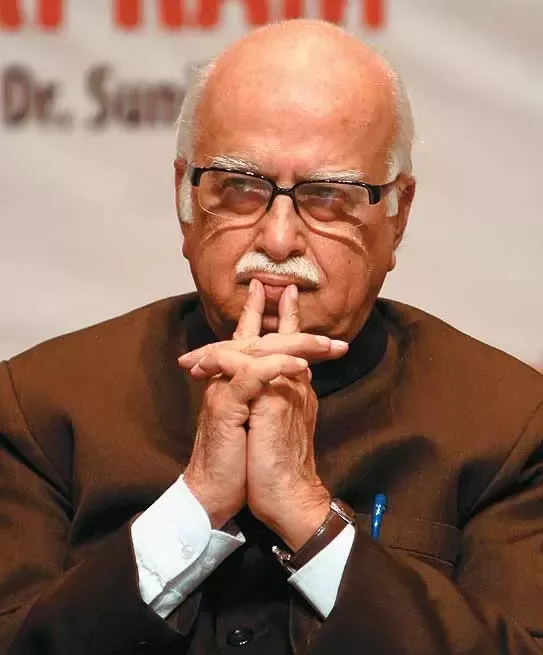 No. The Muslim League wasn’t very strong there. In fact, if opinion were to be taken among even the Muslims of Sindh, I do not know how many would have favored Partition. I do not know. Because the support to Partition, very enthusiastic support, came from parts of the country which were outside that area of Pakistan. And it’s an irony really that Hindus who migrated as a result of Partition from Sindh, from Punjab, from NWFP or from East Pakistan, East Bengal, they are all very well settled here. Perhaps many of them have risen to heights they could never have conceived of if there had been no Partition, I know the population of Sindh that has come here, the kind of challenging situation an uprooted population has to face brings out the best in that community, in that section. This is what has happened to the Sindhis, to the Punjabis. But they are all part of the nation here, assimilated, no problem of that kind. It’s not like the people, Muslims, from U.P. and Bihar who have gone to Pakistan and who even after 50 years are identified as muhajirs. Who are not accommodated there. And because of whom Karachi has been witnessing bloody sights of a kind that are unbelievable.
No. The Muslim League wasn’t very strong there. In fact, if opinion were to be taken among even the Muslims of Sindh, I do not know how many would have favored Partition. I do not know. Because the support to Partition, very enthusiastic support, came from parts of the country which were outside that area of Pakistan. And it’s an irony really that Hindus who migrated as a result of Partition from Sindh, from Punjab, from NWFP or from East Pakistan, East Bengal, they are all very well settled here. Perhaps many of them have risen to heights they could never have conceived of if there had been no Partition, I know the population of Sindh that has come here, the kind of challenging situation an uprooted population has to face brings out the best in that community, in that section. This is what has happened to the Sindhis, to the Punjabis. But they are all part of the nation here, assimilated, no problem of that kind. It’s not like the people, Muslims, from U.P. and Bihar who have gone to Pakistan and who even after 50 years are identified as muhajirs. Who are not accommodated there. And because of whom Karachi has been witnessing bloody sights of a kind that are unbelievable.
MR VAZIRANI IN HIS BOOK ABOUT YOU SAYS THAT PUNJABIS AND BENGALIS WHO MIGRATED TO INDIA IN ’47, THEY CAME IN SUCH LARGE NUMBERS THEY KEPT THEIR CULTURE IN TACT. SINDHIS DIDN’T SO MUCH. SINDHIS LOST MUCH OF THEIR CULTURE.
This is true that Sindhis, being a very small community, being principally businessmen, they became scattered all over the country and all over the world. Hardly any part of the world that I don’t come across a Sindhi. Perhaps some curio shop, some this, some that, there are some Sindhis there. And the principal instrument which keeps the culture or a sub-culture of a community alive is language. And the younger generation of the Sindhis, they do not know the language. I know that newspapers published in Sindhi, they have a very dwindling readership – because the script is Arabic and Arabic script isn’t easy to follow. I may read it and I can write – but not my children. My children can speak Sindhi, my children can understand Sindhi, but not read and write it. So that is a handicap.
DID YOU EVER THINK IN ’47 THAT YOU MIGHT STAY IN KARACHI?
Looking back I would say that a sense of uncertainty was there. Our decision was to stay, because unlike Punjab where riots broke out even before Partition, in Sindh even after Partition there were no riots. Riots took place in January 1948. There were killings, stray killings in the trains, on the streets, but no such thing as was witnessed in Punjab, or North-West Frontier Provinces or say even in East Bengal or in Bengal. Nothing of that kind we sway. Therefore at that point of time when Partition was about to take place, there was a sense of uncertainty – what is going to happen. But basically, why should we go? We’ll stay on, we’ll stay on – that was the feeling.
SO WHAT HAPPENED TO CHANGE THAT?
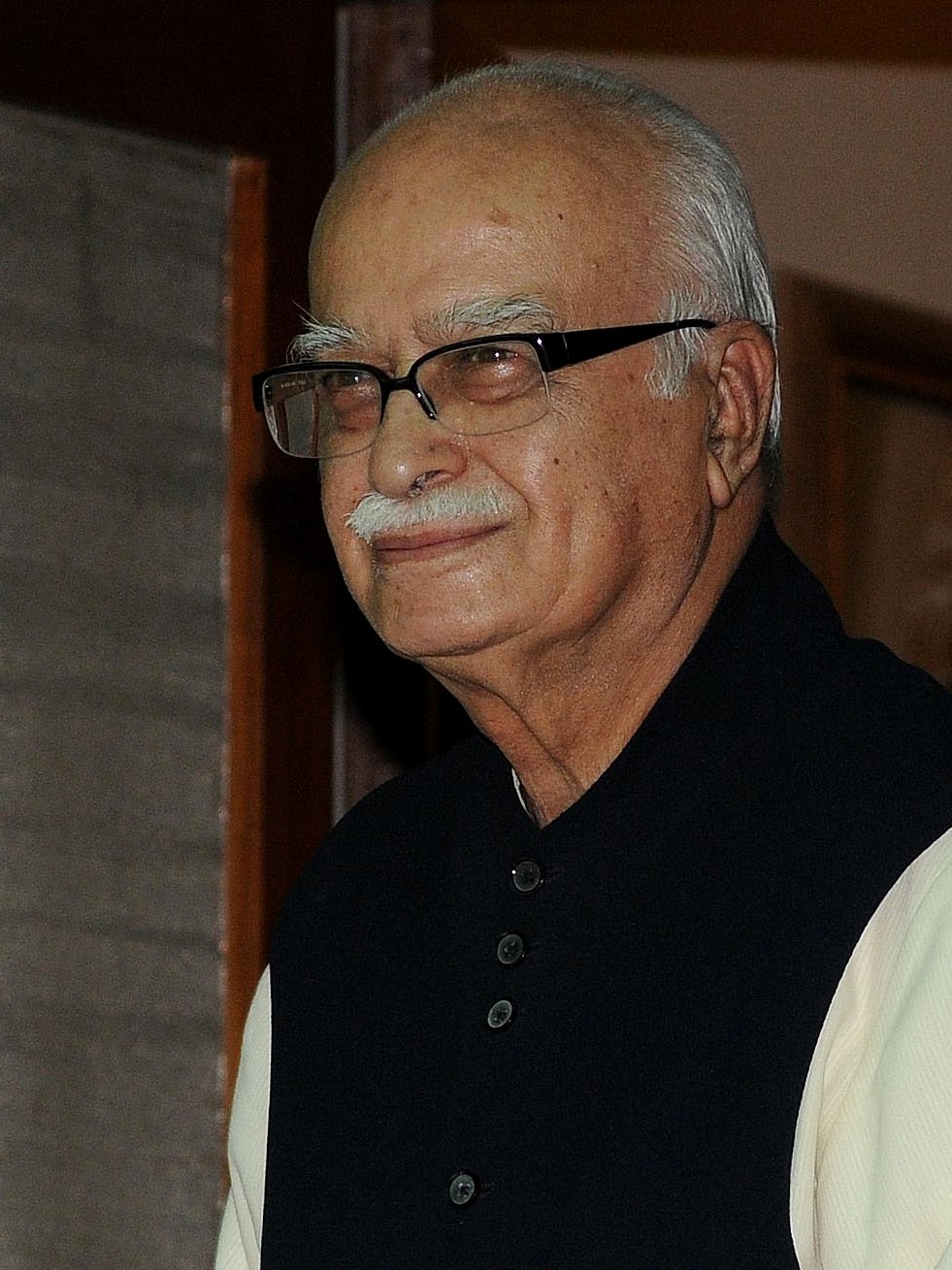
The change came about as far as I am concerned, or perhaps the entire Hindu population of Sindh is concerned, by an explosion that took place in September in Karachi. And that explosion was attributed – a bomb explosion – it was attributed to the RSS. And then there was a wholesale of RSS people – this, that. I came at that point of time. And incidentally, about the same time Gandhi-ji addressed a meeting of RSS here in Delhi and I remember very well the ‘Dawn’ issue of the 12th of September or 11th of September – one of these days – 1947, in which on one side was a report on Gandhi’s address to the RSS rally here in the course of which he had criticized Pakistan for trying to send tribesmen in Kashmir and said that if Pakistan persists in this kind of attitude, who knows there may be a war between India and Pakistan, that should not happen. And – so that on one side there was that report on the explosion in Karachi which was headlined ‘RSS Plot to Blow up Pakistan Unearthed’ and on the other side was ‘Gandhi Speaks to RSS Volunteers in Terms of War’. These were the two headings that I recall.
SO THE STORM CLOUDS WERE GATHERING IN A –
Yes. In a big way.
DID YOU FEEL FRIGHTENED?
No. I wouldn’t say we were frightened because I was young, I was 19 years old, I was in the RSS in which we were supposed to build up a sense of pride and courage among the society. So – not frightened really.
DO YOU REMEMBER THE DAY YOU LEFT KARACHI?
I think it was 12th of September 1947.
AND HOW DID YOU GO? WHAT WAS YOUR MODE OF TRAVEL? AND WHICH MEMBERS OF YOUR FAMILY DID YOU GO WITH?
No – my family wasn’t with me. I was all alone. And it was my first time that I’d travelled by air – first time in my life. I travelled from Delhi to – from Karachi to Delhi. And I had come in connection with seeking advice and counsel as to what to do in respect of that bomb explosion or about the RSS round-up that was taking place. My family came somewhat later. My family left a month or so – Because it was during the month of September and October that the migration started in a big way – from Sindh. Then the second time in January 1948, because riots took place, broke out, in Sindh also.
WHEN YOU GOT THAT PLANE, DID YOU FEEL LIKE A REFUGEE?
I was so engrossed at that time with RSS activity that my feelings were not that of an ordinary family member, householder, who is concerned about his property, about his goods, about his valuables, where he would stay, where he would not stay. Even at that time, I was working whole time for the RSS.
YOU LIVED IN PAKISTAN FOR ALMOST A MONTH, TWO DAYS LESS THAN A MONTH IF YOU WENT ON SEPTEMBER 12th –
Yes.
DO YOU REMEMBER INDEPENDENCE DAY IN KARACHI?
Yes. I was there on that day, but there was no elation in my mind, no happiness in my mind that India has become free. And I remember many students also refused to take the sweets that were given to them in school. We came back: this is no freedom, this is no day of happiness.
YOU DIDN’T GO ALONG TO SEE JINNAH –
No, no. Nowhere. I didn’t go to see any function, any – anywhere. And I don’t think – Most Hindus reacted similarly.
DID YOU SEE JINNAH AT ALL?
No.
YOU NEVER SAW HIM AT ALL – FACE TO FACE?
No, never. I’ve seen just the films and the pictures later on.
DO YOU EVER THINK THAT YOU PERSONALLY MADE A MISTAKE LEAVING KARACHI – THAT YOU SHOULD HAVE STAYED?
No. I don’t think so. And what has happened subsequently has only shown that our assessment was correct. Earlier assessment – I remember, immediately after 15th August when people used to ask us: “we are leaving, we are leaving, we should – should we go”. I would say: “no, don’t go, we should not go. Why should we go?” That was the – That was the advice given not only be my personally but by the RSS as a whole.
SO YOU WERE HAPPY TO BE RSS ACTIVISTS WITHIN PAKISTAN AND LOYAL TO PAKISTAN? GOOD CITIZENS OF PAKISTAN?
It was so brief a period where the question of being loyal to Pakistan etcetera, that hardly arose. We were living in our own place. And Pakistan is a kind of an imposition on us, this is our place – that was our feeling at that time.
DO YOU REGARD PARTITION AS A CLOSED EPISODE, OR DO YOU REGARD IT AS SOMETHING WHICH IS STILL BEING LIVED THROUGH?
For people of my generation, we would always have memories of that. But when we see the entire course of events in the world perspective, I think a day would come when both these countries would come to co-exist once again and become part of some confederation or something of that kind. After all, in terms of mode of living etcetera, in terms of so many values also, there’s not such a divergence.
YOU SEEM TO BE TRYING TO RESURRECT THE CABINET MISSION PLAN OF ’46.
Whatever one may call it but – it’s worth striving for. From all angles.
YOU –
I remember – I remember this. I happened to belong to that part therefore my thinking may be somewhat subjective, but to relate to the party and the ideology which I represent today, I recall very well that around the year 1955, ’56, when I was working for the Jan Sangh and our principal ideologue was Deen Dayal Upadhyaya, we came into close contact with Dr. Lohia, socialist leader. And in one of the conversations he said that “I find the Jan Sangh very good, but Muslims have an aversion for you. Muslims feel afraid of you. And they feel afraid of you because you talk of Akand Bharat, -”
GREATER INDIA –
Greater India. Undivided India. “And when you talk of Akand Bharat, you give the impression that if one day you were to come to power in India – your party, Jan Singh – then you would march on Pakistan, and then annex Pakistan, and make it undivided India as before 1947.” Deen Dayal Upadhyaya said “it’s nonsense: “we don’t think in those terms at all, and it’s just not going to happen.” After all, we may not like Partition, but Partition is a fact, it’s a reality. And as time passes, these two nations will crystallize as separate nations. And when we talk of Pakistan – if I were to look into the future – of undivided India, Akand Bharat, we think in terms of these two countries one day voluntarily deciding that Partition has not helped either country, why not let us come together. And then both Deen Dayal Upadhyaya and Dr. Lohia issued a joint statement saying that Akand Bharat means the possible confederation of India and Pakistan of their own volition one day. This was a joint statement issued around ’56 by the two. Dr. Lohia said: “if this is your understanding of Akand Bharat then I am all for it.”
AND THAT REMAINS YOUR UNDERSTANDING –
That remains my understanding.
BUT YOU WOULD LIKE ONE DAY LIKE TO GO TO KARACHI WITHOUT A PASSPORT?
I would – I would like to go without a passport. And in fact I – I may mention that when I visited Karachi in 1978 as a minister of information and broadcasting, it was for me a memorable event. It evoked nostalgia of a very pleasing kind. And – I visited my own house. I visited my school – where they had arranged a big function, big guard of honor etcetera. It was a real memorable event.
… YOU WERE AN RSS CADRE, VERY ACTIVE IN KARACHI, BEFORE PARTITION. BUT FOR ANYONE HAVING TO LEAVE THEIR HOME AND SAY GOODBYE TO THEIR HOME CITY IS A BIG EVENT, PARTICULARLY WHEN YOU’RE 19 – A VERY INFLUENTIAL AGE. DO YOU THINK THAT HAS HELPED TO MOULD YOUR POLITICAL OUTLOOK?
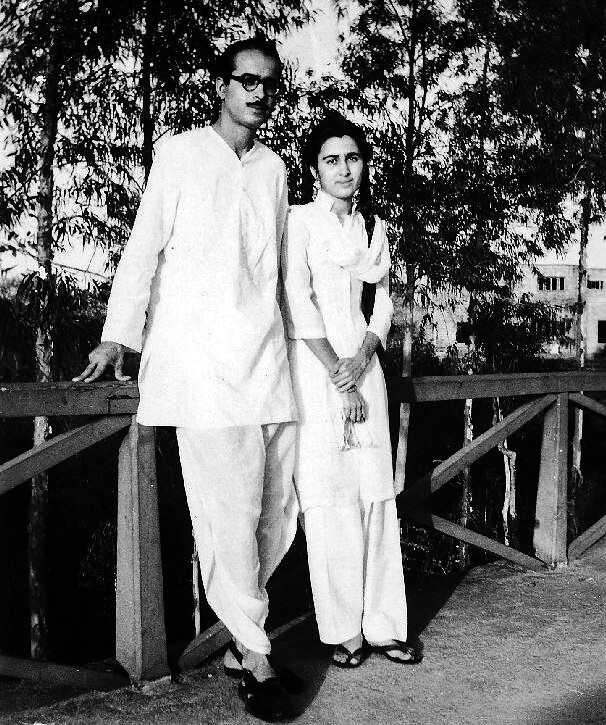
People who are not familiar with Karachi or Sindh may – and I have seen writings of that kind – they feel that because of that migration from Karachi, there may be feelings of bitterness in my mind. When – as I explained to you that bitterness just could not be there, because we did not view Partition as having been inflicted on us by the Muslim community living in Sindh. So that feeling of bitterness wasn’t there. And therefore from that angle it has not moulded my outlook or attitudes. Though I do think that what is true about me is true about the entire Sindhi community – being uprooted from their hearths and homes, it was a challenging situation for every one of us which brought out the best in us. So irrespective of whether a person was in business, or he was a student, or he was an agriculturist, or he was a doctor, or he was a professional of some other kind, the fact that he had to cope with so many challenges altogether certainly did good to us.
IT MADE SINDHIS MORE DETERMINED?
Yes, more determined. I – I know that the kind of educational institutions or hospitals that have been set up by the Sindhis in Bombay would have been a matter of pride for any community and I doubt if all that could have been achieved in Pakistan – if we had not been unsettled and uprooted.
YOU’RE SAYING THAT PARTITION WAS GOOD FOR SINDHIS?
In a way, yes. In a way, yes – to that extent, as I said – Just as a person when he goes abroad, he goes and settles abroad, he does achieve something that he may not achieve at home.
THE PERSON WHO SETTLES ABROAD CAN ALWAYS COME HOME.
Yes, that’s true. Here it’s different.
So far as the bond of language is concerned, I may mention that when in 1991, Benazir Bhutto came for Rajiv Gandhi’s funeral – she was at that time leader of the opposition in Pakistan Parliament, Nawaz Sharif was the prime minister at that time – and she met me. She came to see Vajpayee-ji and myself. We were both at Vajpayee’s place. And the first sentence that she spoke was in Sindhi, saying: “Advani-sahib [phrase in Sindhi]”, meaning: Mr. Advani, I suppose I should speak to you in Sindhi. I said: certainly. But then she laughing, smilingly, added: I cannot speak Sindhi properly.
SO YOUR SINDHI IS BETTER THAN HERS?
No, it’s alright. It’s fine – but natural kind of affinity that comes about because of language.
____________________
Courtesy: Andrew Whitehead